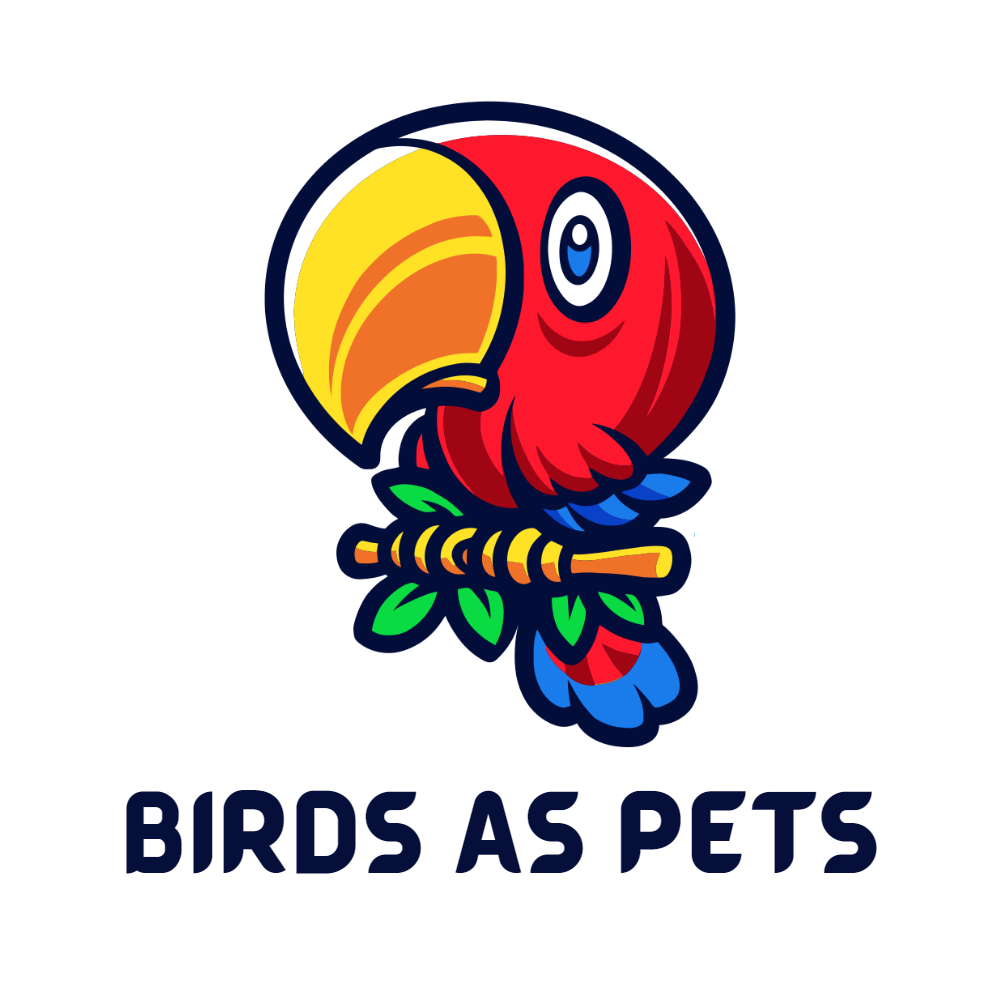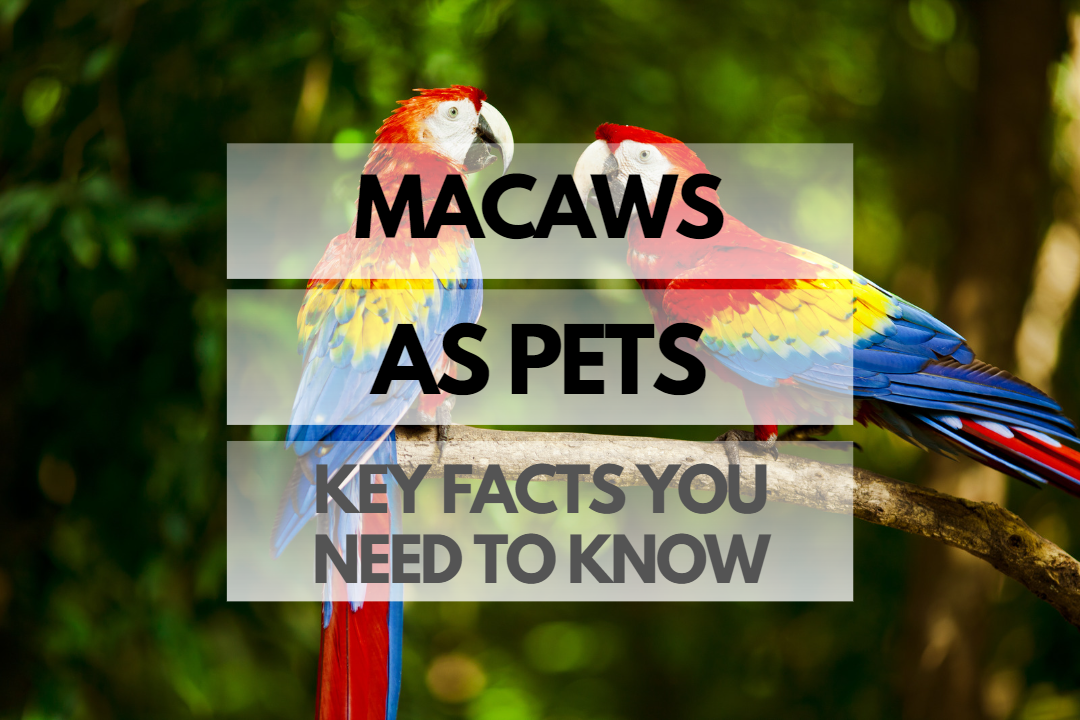Macaws are large, vibrant, and majestic birds that can make for fascinating pets. Known for their striking appearance, intelligence, and playfulness, these parrots can be a wonderful addition to the right household. However, they also require a significant commitment in terms of time, space, and resources. In this article, we’ll cover everything you need to know about Macaws as pets, from their natural habitat to the pros and cons of owning one.
Quick Reference Table: Macaw Facts
| Fact | Description |
|---|---|
| Size | Varies by species; ranges from 20 inches to 42 inches in length |
| Weight | Varies by species; ranges from 0.5 to 3.75 pounds |
| Lifespan | Up to 60 years or more with proper care |
| Color | Vibrant and varied, including blue, green, red, yellow, and more |
| Native Habitat | Central and South America, particularly tropical rainforests |
Where Do Wild Macaws Live?
Wild Macaws are native to Central and South America, with a majority of species found in the tropical rainforests. They mainly inhabit areas with dense vegetation, such as the Amazon Basin and the forests of Panama and Mexico. Macaws are highly social creatures that typically live in large flocks and form strong pair bonds with their mates.
Macaw Lifespan: How Long Do They Live as Pets?
Macaws have an impressive lifespan, with some species living up to 60 years or more in captivity with proper care. This long life expectancy means that owning a Macaw is a significant time commitment, and potential owners should be prepared for a lifetime of care and companionship. Providing a balanced diet, spacious living conditions, regular veterinary care, and mental stimulation will help ensure a long, healthy life for your Macaw.
Are Macaws Good Pets?
Macaws can make amazing pets for the right person or family. They are known for their intelligence, playfulness, and affectionate nature, which can make them highly rewarding companions. However, they also require a great deal of time, attention, and resources to thrive. Macaws are not suitable for everyone, so it’s essential to carefully consider your lifestyle and resources before deciding to adopt one of these beautiful birds.
Are Macaws as Pets Good for Beginners?
Macaws are generally not recommended for first-time bird owners due to their size, demanding care requirements, and potential behavioral challenges. Smaller parrot species, like budgies or lovebirds, may be a more suitable choice for those new to bird ownership.
Are Macaws Easy to Care For?
While Macaws are relatively hardy birds, their care can be quite demanding. They require a spacious living environment, a balanced and varied diet, and regular social interaction and mental stimulation. Additionally, they can be prone to certain health issues and may exhibit challenging behaviors, such as loud vocalizations or destructive chewing. As a result, Macaws may not be considered easy to care for, especially for inexperienced bird owners.
Macaw Pros and Cons
| Pros | Cons |
|---|---|
| Intelligent and trainable | Require a lot of space |
| Affectionate and social | Loud vocalizations |
| Long lifespan | High ongoing costs |
| Beautiful and captivating appearance | Not suitable for beginners |
Macaw Price and Costs
The initial price of a Macaw can range from $1,000 to $4,000, depending on the species, age, and source. Setup costs for a spacious cage, toys, perches, and other necessary accessories canalso add up quickly. Ongoing expenses include a varied diet consisting of fresh fruits, vegetables, nuts, and high-quality pellets, as well as regular veterinary care. Additionally, potential owners should be prepared for the cost of replacing toys and cage accessories due to the Macaw’s strong beak and love for chewing.
Where to Buy Macaws
Reputable breeders, rescues, and specialized bird stores are the best places to find a Macaw. It’s important to do thorough research and visit potential sellers to ensure the Macaws are being raised in a healthy and ethical environment. Adopting a Macaw from a rescue organization is also a great option, as many birds are in need of loving homes.
Caring for Macaws
Macaw Food
Macaws require a balanced and varied diet to stay healthy. A mix of high-quality pellets, fresh fruits, vegetables, and nuts should make up the majority of their diet. It’s important to avoid foods that are toxic or harmful to Macaws, such as chocolate, avocado, and caffeine. Providing a cuttlebone or mineral block can also help meet their calcium requirements and support healthy beak maintenance.
Health and Common Issues
Macaws can be susceptible to several health issues, including feather plucking, respiratory infections, and psittacosis (parrot fever). Regular veterinary checkups, a balanced diet, and proper hygiene can help prevent many common health problems. Keeping an eye out for signs of illness, such as changes in behavior, appetite, or appearance, is essential for maintaining your Macaw’s well-being.
Signs of Healthy Macaw vs. Sick Macaw
| Healthy Macaw | Sick Macaw |
|---|---|
| Bright, clear eyes | Discharge or cloudiness in eyes |
| Smooth, vibrant feathers | Ruffled, dull, or plucked feathers |
| Alert and active | Lethargic or unresponsive |
| Normal droppings | Diarrhea, discolored, or abnormal droppings |
| Maintaining weight | Unexplained weight loss |
Macaw Pet Insurance
Given the potential health issues and costs associated with owning a Macaw, pet insurance can be a worthwhile investment. Several insurance companies offer coverage tailored to exotic pets like Macaws, which can help offset the costs of veterinary care, medications, and treatments. When selecting pet insurance, be sure to compare coverage, exclusions, and deductibles to find a plan that best suits your Macaw’s needs and your budget.
Personality and Behavior
Macaws are known for their intelligent, playful, and affectionate personalities. They often form strong bonds with their owners, making them excellent companions for those willing to invest time and energy in their care. However, Macaws can also be strong-willed and may exhibit challenging behaviors, such as biting, screaming, or destructiveness, if not properly trained and mentally stimulated.
Are Macaws Social?
Yes, Macaws are highly social creatures that thrive in the company of their human family and other birds. In the wild, they live in large flocks and form lifelong pair bonds with their mates. As pets, they need regular interaction, socialization, and mental stimulation to prevent loneliness, boredom, and behavioral issues. If you’re considering a Macaw as a pet, be prepared to dedicate time each day to play, training, and bonding activities.
Speech and Noise of Macaws
Macaws are known for their impressive vocal abilities and can be quite noisy pets. They can mimic human speech, whistle tunes, and produce a wide range of natural vocalizations, such as squawks and screams. While some owners find their Macaw’s vocalizations charming, others may find the noise level overwhelming. Potential Macaw owners should be prepared for a loud pet, especially if they live in close quarters with neighbors.
Similar Species to Macaws
There are several parrot species that share similarities with Macaws but may have different care requirements or temperaments. Some of these species include African Greys, Amazons, Eclectus parrots, and Cockatoos. Each of these birds has its own unique personality, appearance, and care needs, so it’s important to research and consider multiple options before deciding on the perfect parrot companion for your family.
Can Macaws Live With Other Pets and Birds?
Macaws can coexist with other pets, including other birds, under the right conditions. However, they are best housed with other Macaws or similarly-sized parrots to minimize the risk of injury or aggression. Introductions between Macaws and other pets should be carefully supervised, and it’s essential to provide separate living spaces and enrichment for each animal to prevent conflicts or competition for resources.
Are Macaws Legal to Have as Pets?
Macaws are generally legal to own as pets in most countries, including the United States. However, some species may be protected under international conservation laws, such as the Convention on International Trade in Endangered Species (CITES), and may require special permits or documentation. It’s important to check local and national regulations before acquiring a Macaw to ensure compliance with all applicable laws.
Additional Resources
- Guide to a Well-Behaved Parrot by Mattie Sue Athan
- Macaw Owners Facebook Group
- Avian Avenue Forums
- Lafeber: Macaw Species Profile
FAQ for Macaws as Pets
Do Macaws talk?
Yes, many Macaws have the ability to mimic human speech, as well as other sounds and noises. Their ability to talk and the extent of their vocabulary varies by individual, but with patience and consistent training, many Macaws can learn to say words and phrases.
Are Macaws suitable for families with young kids?
Macaws can be suitable for families with young kids if they are properly socialized and supervised. However, due to their size, strength, and potential for loud vocalizations, they may not be the ideal choice for all families. It’s important to teach children how to safely interact with a Macaw and closely supervise all interactions to ensure a positive experience for both the bird and the child.
Can Macaws be trained?
Yes, Macaws are highly intelligent and can be trained to perform various tricks, behaviors, and commands. Training should be based on positive reinforcement, using rewards such as treats, praise, and attention to encourage desired behaviors. Consistency and patience are key when training a Macaw, as progress may be gradual.
How do I know what gender Macaws are?
Determining the gender of a Macaw can be challenging, as there are few visual differences between males and females in most species. The most accurate way to determine the sex of a Macaw is through DNA sexing, which involves testing a small sample of blood or feathers. This can be performed by a veterinarian or through specialized DNA testing services.
What is the lifespan of a Macaw?
Macaws are known for their long lifespans, with some individuals living up to 60 years or more in captivity. Proper care, including a balanced diet, regular veterinary care, mental stimulation, and a clean living environment, can help ensure a long, healthy life for your Macaw.
What kind of cage do Macaws need?
Macaws require spacious cages to accommodate their large size and active nature. The cage should be at least 2.5 times the wingspan of the bird in width and at least 1.5 times the length of the bird in height. It should also be made of sturdy material, such as stainless steel, to resist damage from the Macaw’s strong beak. Provide a variety of perches and toys for enrichment and exercise.

